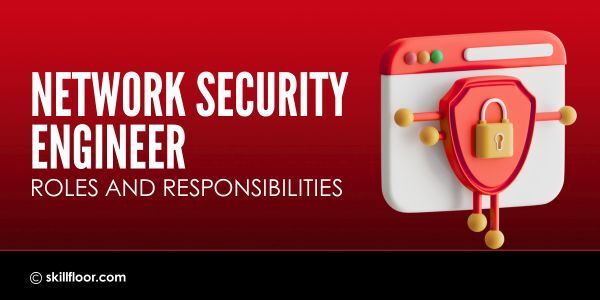Ethical Hacker Jobs in India
Explore ethical hacking jobs in India, learn about roles, required skills, certifications, salary trends, and how to start your career in cybersecurity.

A few years ago, when I was just beginning to explore the tech world, I joined a cybersecurity webinar. The speaker, an ethical hacker, talked about how he had helped a big company stop a serious cyberattack. I was amazed to learn that hacking could be a real job—one that’s legal and helps people. That moment sparked my interest in ethical hacking, and I decided to learn more about it.
Today, I work in cybersecurity, and ethical hacking has become more than just a job—it’s my passion.
Why Ethical Hacking Matters Today
Ethical hacking isn’t just about breaking into systems (legally, of course). It’s about protecting important data, building trust online, and avoiding hackers who want to cause harm.
In India, cyberattacks have been increasing rapidly. Big companies have faced ransomware attacks, and even banks have dealt with data leaks. With the government’s Digital India initiative, more businesses and services are moving online, which means more opportunities for hackers—and a greater need for cybersecurity.
That’s where ethical hackers come in. Every organization, whether it’s a bank, an online shopping platform, or a hospital, needs someone to secure their systems. Ethical hackers use their skills to think like bad hackers but work to fix vulnerabilities and keep data safe. We play a key role in keeping the digital world secure.
My Path to Ethical Hacking
When I first heard about ethical hacking, I was a computer science student with zero knowledge of cybersecurity. It felt overcome. But I started small—learning basic programming and understanding how networks work. I remember spending countless hours exploring tools like Wireshark and Kali Linux, trying to figure out how hackers think.
Once I got the hang of it, I knew I had to validate my skills. I earned my Certified Ethical Hacker (CEH) certification through Skillfloor, which opened doors to internships and entry-level opportunities. Over time, I worked on real-world projects, participated in bug bounty programs, and even joined online challenges.
What I realized along the way is that ethical hacking isn’t just about technical skills. It’s about having the mindset to solve problems creatively and the patience to learn continuously because cyber threats evolve every single day.
Scope of Ethical Hacking in India
If you’re wondering whether ethical hacking is a good career choice, let me assure you—it is. The demand for ethical hackers in India is skyrocketing, and this is just the beginning.
Why Demand Is Growing
-
Rise in Cyberattacks: Cyber threats are increasing, and organizations are struggling to keep up. Ethical hackers are needed to test systems and fix vulnerabilities.
-
Digital Transformation: With more businesses adopting cloud computing and online platforms, the need for cybersecurity professionals has grown exponentially.
-
Stricter Data Protection Laws: Regulations like the Personal Data Protection Bill require companies to prioritize cybersecurity, which means more jobs for ethical hackers.
Industries Hiring Ethical Hackers
Over the years, I’ve seen opportunities in a wide range of industries:
-
IT and Software Development
-
Banking and Financial Services
-
Healthcare
-
E-commerce
-
Government Organizations (like CERT-In and DRDO)
Major cities like Bangalore, Hyderabad, Mumbai, and Pune are hubs for cybersecurity jobs, offering some of the best opportunities.
Ethical Hacking Job Roles and Responsibilities in India
One thing I love about this field is the variety of roles you can take up. Here are some of the job titles I’ve come across (and some I’ve worked in):
-
Penetration Tester: These professionals simulate attacks on systems to find vulnerabilities. It’s like being paid to hack but for good.
-
Security Analyst: Monitors and assesses security systems to detect breaches or anomalies.
-
Vulnerability Assessor: Focuses on identifying weaknesses in systems and reporting them.
-
Cybersecurity Consultant: Advises companies on improving their overall security posture.
-
Network Security Engineer: Secures communication channels and prevents unauthorized access to networks.
-
Information Security Manager: Develops and implements organization-wide security strategies.
Each role has its own set of responsibilities, but they all revolve around protecting systems and data from cyber threats.

Skills You Need to Succeed in India
When I started, I was clueless about what skills were necessary for ethical hacking. Here’s what I’ve learned:
Educational Background
A degree in Computer Science, Information Technology, or a related field is often preferred, but it’s not a dealbreaker. What matters more is your practical skills and certifications.
Certifications That Help
Certifications are essential for building credibility as an ethical hacker. Some top certifications include:
-
Certified Ethical Hacker (CEH): Ideal for beginners, covering the basics of ethical hacking.
-
Offensive Security Certified Professional (OSCP): A hands-on certification for penetration testers.
-
Certified Information Systems Security Professional (CISSP): For experienced professionals focusing on security program management.
-
Computer Hacking Forensic Investigator (CHFI): Focuses on investigating cybercrimes and retrieving digital evidence.
Earning my CEH was a turning point in my career—it taught me the fundamentals and boosted my resume.
For those starting out, Skillfloor offers helpful courses and resources to guide you through certifications and practical skills.
Technical Skills
Here are the skills I use daily:
-
Programming: Python, Java, and even some C++.
-
Networking: Knowledge of TCP/IP, firewalls, and VPNs.
-
Hacking Tools: Kali Linux, Metasploit, Burp Suite, and Wireshark.
-
Operating Systems: Linux and Windows expertise is essential.
Soft Skills That Matter
You’d be surprised how much non-technical skills matter in this field. For instance:
-
Problem-Solving: Finding creative solutions to unique security challenges.
-
Communication: Explaining complex technical issues to non-technical teams.
-
Adaptability: Staying ahead of evolving threats.
Salary Trends in Ethical Hacking
One of the best parts of working in ethical hacking is the earning potential. Here’s what you can expect in India:
-
Entry-Level Professionals: ₹3–5 LPA (lakhs per annum)
-
Mid-Level Professionals: ₹6–10 LPA
-
Experienced Professionals: ₹12–20 LPA or more
Your salary will depend on factors like your certifications, experience, and location. For example, cities like Bangalore often offer higher packages due to the presence of IT giants.
Top Companies Hiring Ethical Hackers
India has no shortage of companies hiring ethical hackers. Some of the big names include:
-
IT Giants: Infosys, Wipro, TCS, HCL
-
Global MNCs: IBM India, Accenture, Capgemini
-
Government Organizations: CERT-In, DRDO, Indian Army
-
Cybersecurity Firms: Quick Heal, Lucideus, Innefu Labs
How You Can Get Started
Starting a career in ethical hacking can seem daunting, but here’s the path I followed (and recommend):
-
Build a Strong Foundation
Learn programming languages and get comfortable with networking basics. Tools like Kali Linux and Wireshark are a great place to start. -
Earn Certifications
Begin with CEH and move on to advanced certifications like OSCP as you gain experience. -
Gain Hands-On Experience
Participate in bug bounty programs (I started with HackerOne), join online challenges, and practice on platforms like Hack The Box. -
Create a Portfolio
Document your projects, certifications, and bug bounty achievements. A strong LinkedIn profile or GitHub portfolio can make all the difference. -
Apply for Jobs
Use platforms like Naukri, LinkedIn, and specialized job boards to find ethical hacking opportunities. Start with internships if needed—they’re a great way to gain experience.
Challenges and Opportunities in Ethical Hacking
Ethical hacking is a rewarding career, but it’s not without challenges. Cybercriminals are constantly evolving their tactics, so staying ahead requires continuous learning. On the flip side, this means there’s always something new to explore, and the field will only grow as technology advances.
The Ethical Aspect of Hacking
One thing I’ve learned is that ethical hacking comes with a lot of responsibility. In India, hacking is governed by laws like the IT Act, of 2000, and working without proper authorization can land you in serious trouble. Always operate within legal and ethical boundaries—it’s not just about legality, but about building trust with the organizations you work with.
My Final Thoughts
Becoming an ethical hacker has been one of the most fulfilling decisions of my life. It’s a career that challenges me, allows me to solve meaningful problems, and keeps me on the cutting edge of technology.
If you’re passionate about technology and love solving puzzles, ethical hacking could be the perfect path for you. Start small, invest in your skills, and take that first step. Trust me, the rewards are worth it. Together, let’s make the digital world a safer place.





























































